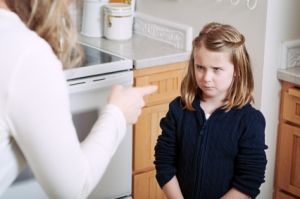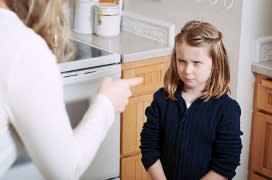In this week’s Parsha we read the the most important mitzvah in the Torah according to Rabbi Akiva: v’ahavta l’rei’echa kamocha, “Love your neighbor as yourself.”
How can we love our neighbor as ourselves?
One way is to give the benefit of the doubt, dan l’kaf zchut. We want to always try to put ourselves in another’s shoes.
 Let’s apply this to parenting our children.
Let’s apply this to parenting our children.
Children generally don’t misbehave because they are bad. There is usually something prompting their behavior.
As parents we usually assign a negative motive to our child’s behavior:
- A baby in their highchair, will throw their food because they are finished and they haven’t learn to say “I’m done.”
- A toddler will tantrum because they are overwhelmed, hungry or tired and they don’t know how to manage those feelings.
- A teen will act out because they don’t have the self-awareness to let you know that they were embarrassed in front of their friends because they didn’t have the latest sneakers, the ones that everyone is wearing.
When this happens we throw up our hands and tell our children of all ages that they are behaving badly.
Instead, all we need to do is give them the benefit of the doubt.
We need to scratch beneath the surface of their behavior, and consider why are they acting in such a manner. We need to stop labeling their behavior as bad when it is pretty normal.
When baby throws food from the highchair, we can model the words that they need to learn: “You’re finished with your breakfast. When you finish say ‘all done.’”
Even if a child is not talking yet, you are still modeling appropriate language, which is how children learn.
For your toddler who is in the throws of a tantrum, you can say, “You are so tired (hungry, angry). Let’s find a place for you to calm down.”
For your teen, you can acknowledge their feelings, “It can be embarrassing when you don’t feel like you fit in with your friends.” If this is hard for you, just imagine a time when you went casual and you showed up at the event and everyone was dressed to the nines.
When we parent, it is valuable to give children the benefit of the doubt, and not immediately assume that they are misbehaving.
Children need us to believe the best about them and this is just one way we can do that.
The words of this author reflect his/her own opinions and do not necessarily represent the official position of the Orthodox Union.

